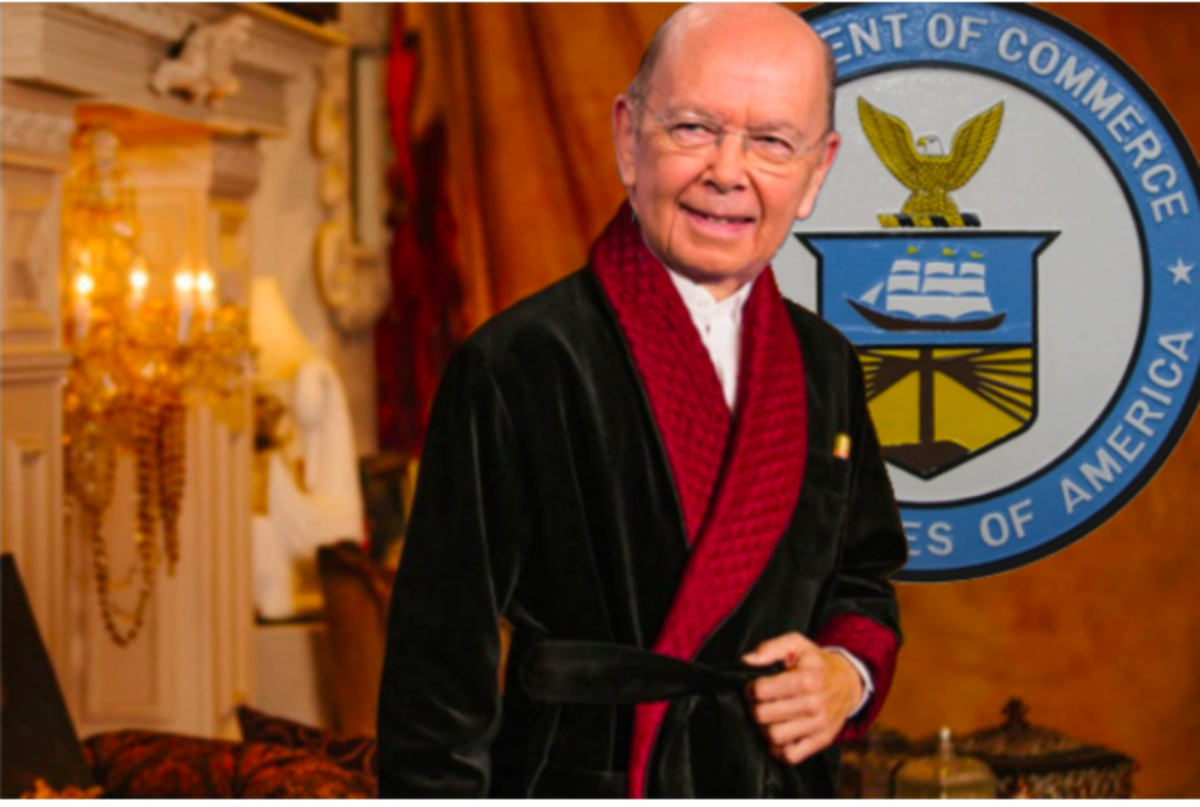All law professors have hobbies. For some, it is cooking. For others, it is politics. And others seem like they have a deep problem with anyone who isn’t white. They do things like claim that black law students perform poorly compared to their white counterparts. Or that U.S. immigration policy should allow mostly whites into the country. Yes, some hobbies are more troubling than the others, and, for once, I’m not talking about those of you who cook with Instant Pots.
Professor Amy Wax, the person whose take on immigration and her own law students has caused some internet backlash, is no stranger to controversy. But wait, there’s more! She suggested this about Dr. Christine Blasey Ford’s allegations against Justice Kavanaugh: “I think she should have held her tongue, if I were her I would have, I think basic dignity and fairness dictates that, you know, it’s too late, Ms. Ford, even if there would have been consequences to bitching about it at the time, so there’s that.” Maybe this was an attempt to get Penn students clerkships in a way that other professors at another school have done… um, more effectively?
I’m not suggesting that Professor Wax be fired. She is protected by tenure and I am a firm defender of tenure. However, tenured speech is not without consequences, as Professor Wax herself knows as she was yanked from teaching 1L core courses, and as Penn Law knows as its donors consider other options.
Let’s start with a Professor Wax proposition. I’ll quote: “I don’t think I’ve ever seen a black student graduate in the top quarter of the class, and rarely, rarely, in the top half … I can think of one or two students who scored in the top half of my required first-year course.”
So, let’s break statement apart. The implication she is perhaps making appears to be that black students at Penn are not very smart. She hasn’t seen a black student in the top quarter, and in her class she’s only seen two black students score in the top half of her (then) required first-year course. Her conclusion: Black students are unprepared for elite schools.
The first question must be to determine the veracity of her statements. Professor Wax has suggested she has the data to back it up, and even suggested but for the pain of doing so, she’d have an easy defamation suit against her dean. Her dean and law students at the school suggest she is absolutely wrong. Sounds like we’re not getting anywhere.
So let’s be fair to Professor Wax for a moment and assume (Narrator: BIG ASSUMPTION) that it is true that she’s never “seen” a black student graduate in the top quarter of the class. That isn’t necessarily related to the ability of black students to achieve. It may come from a variety of other sources. Just a few examples: Maybe Penn Law has a diversity problem? Maybe there are other professors at Penn who make assumptions like Professor Wax and grade accordingly? Maybe she hasn’t seen black students because they avoid her like the plague? In other words, one’s personal observation makes for bad science. And even if there were data to back up Professor Wax, it would still be bad science to not question the underlying causes of the observation.
I shall illustrate data misuse with an example: Suppose I go to the top 10 law schools and observe that there aren’t very many underrepresented minorities teaching there. A racist might say: “There are very few underrepresented minorities on the faculty of top 10 law schools.” That may be factually true, but that doesn’t necessarily mean what a racist thinks it means. The racist might say “minorities don’t seem to fare well at high ranked law schools as professors because they aren’t prepared to teach at elite law schools.” A better interpretation would be there are systematic barriers that prevent qualified minority faculty candidates from securing positions. I’ve written about how the academic game is rigged.
Professor Wax has a long CV filled with discussions about what is causing America’s problems such as these. In her mind: “All cultures are not equal. Or at least they are not equal in preparing people to be productive in an advanced economy. The culture of the Plains Indians was designed for nomadic hunters, but is not suited to a First World, 21st-century environment. Nor are the single-parent, antisocial habits, prevalent among some working-class whites; the anti-‘acting white’ rap culture of inner-city blacks; the anti-assimilation ideas gaining ground among some Hispanic immigrants.” You might think me unfair in just quoting her op-ed, but then you can go read this article.
So, it seems to me the reason Professor Wax thinks minorities can’t cut it in the legal academy is because they aren’t white, or at least not part of bourgeois (read white) culture. And, if you’re not part of that culture, I suppose Professor Wax thinks, damn it, it’s your own fault. To Professor Wax, success is CULTURAL, but not related at all to barriers created by the dominant culture.
I’ve seen this line of argument before. In The Bell Curve, the authors argue: “The technically precise description of America’s fertility policy is that it subsidizes births among poor women, who are also disproportionately at the low end of the intelligence distribution. We urge generally that these policies, represented by the extensive network of cash and services for low-income women who have babies, be ended.”
Whoa, it’s too bad, because society could use its resources to highlight bourgeois culture to assure more smart people, he said sarcastically. Again, from the Bell Curve: “We can imagine no recommendation for using the government to manipulate fertility that does not have dangers. But this highlights the problem: The United States already has policies that inadvertently social-engineer who has babies, and it is encouraging the wrong women. If the United States did as much to encourage high-IQ women to have babies as it now does to encourage low-IQ women, it would rightly be described as engaging in aggressive manipulation of fertility.” In case you’ve never read this book, you can guess who turns out to be the smartest, in their estimation. Many have discussed the deep flaws in this argument, perhaps none more eloquently than Stephen Jay Gould.
While Professor Wax’s “observations” don’t seem to rest on eugenics, it doesn’t ultimately matter. Because her arguments so remind me of the Bell Curve that I can’t separate the two. Consider this from the Bell Curve:
“The other demographic factor we discussed in Chapter 15 was immigration and the evidence that recent waves of immigrants are, on the average, less successful and probably less able, than earlier waves.” I suspect you know where this new wave of immigration is coming from, compared to the older waves.
Compare that with Professor Wax: “Conservatives need a realistic approach to immigration that … preserves the United States as a Western and First World nation…We are better off if we are dominated numerically … by people from the First World, from the West, than by people who are from less advanced countries.”
Huh. If there were more paragraphs starting with question marks in The Bell Curve (rough transitions), I would think she ghostwrote it. But, to summarize them both: There’s something wrong with current immigration, in that they won’t assimilate. “They” aren’t as successful. Hey, look, we have “data”! It’s like both of them are quoting the House Report discussed in Church of the Holy Trinity v. United States.
As Gould points out about The Bell Curve, “The book is a rhetorical masterpiece of scientism, and it benefits from the particular kind of fear that numbers impose on nonprofessional commentators. It runs to 845 pages, including more than a hundred pages of appendixes filled with figures. So their text looks complicated, and reviewers shy away with a knee–jerk claim that, while they suspect fallacies of argument, they really cannot judge.”
But we can judge. Even if legal scholarship isn’t peer-reviewed, when data is misused and abused, there is an obligation to scrutinize, critique, and refute. Throughout history, the misuse of “facts” to advance a social agenda is conspicuously present. That, my friends, is what the eugenics movement and Social Darwinism was all about. As Dr. Katrin Weigmann’s blog post describes in reviewing the history of eugenics: “Science determines truths, not values. But this truth is always brought to us through the interpretation of scientists. In the past it was scientists who interpreted racial differences as the justification to murder. Also high lead-edge research is not invulnerable to moral abysses….. It is the responsibility of today’s scientists to prevent this from happening again.”
We should not allow Social Darwinism to mislead us as well.
LawProfBlawg is an anonymous professor at a top 100 law school. You can see more of his musings here. He is way funnier on social media, he claims. Please follow him on Twitter (@lawprofblawg) or Facebook. Email him at lawprofblawg@gmail.com.
 Joe Patrice is a senior editor at Above the Law and co-host of Thinking Like A Lawyer. Feel free to email any tips, questions, or comments. Follow him on Twitter if you’re interested in law, politics, and a healthy dose of college sports news. Joe also serves as a Managing Director at RPN Executive Search.
Joe Patrice is a senior editor at Above the Law and co-host of Thinking Like A Lawyer. Feel free to email any tips, questions, or comments. Follow him on Twitter if you’re interested in law, politics, and a healthy dose of college sports news. Joe also serves as a Managing Director at RPN Executive Search.






 Tyler Broker’s work has been published in the Gonzaga Law Review, the Albany Law Review, and is forthcoming in the University of Memphis Law Review. Feel free to
Tyler Broker’s work has been published in the Gonzaga Law Review, the Albany Law Review, and is forthcoming in the University of Memphis Law Review. Feel free to 










